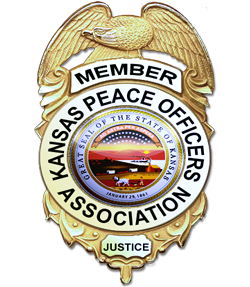A split Kansas Court of Appeals panel has, at least for now, changed Kansas law concerning the timeline for the calling of a drug dog at a traffic stop. For decades we have all understood that based upon reasonable suspicion of a second crime occurring: an officer could continue to detain the car, call for the nearest drug K-9, and wait. Yeah, well, so much for that last part.
Sergio Arrizabalaga was stopped for a traffic violation on an evening in 2017. The facts are not in dispute and the timeline is really what is important to understanding this case. The facts and timeline are: 1) the officer had reasonable suspicion of a traffic violation to stop Sergio and to perform a traffic investigation; 2) during the stop and a conversation with Sergio, the officer developed (secondary) reasonable suspicion that a drug offense was occurring; 3) within 8 minutes, the officer had performed his traffic stop duties, gave Sergio a warning ticket, and released him from the traffic detention; 4) during the next 16 minutes the officer re-contacted Sergio, Sergio consented both to stay, to answer more questions, and, later, to a search of the vehicle; 5) after some questions but before the vehicle search began, Sergio revoked his consent to search; 6) still having (secondary) reasonable suspicion of a drug offense occurring, the officer re-detained Sergio and called for a drug dog; 7) the nearest K-9 took 24 minutes to arrive; 8) upon arrival, the dog alerted to the odor of controlled substances coming from the vehicle (PC to search), and a search found 111 pounds of marijuana.
The trial court later held two suppression hearings. In the first, the trial judge found that the officer had developed reasonable suspicion of a drug crime occurring during the initial traffic stop investigation portion of the event. In the second hearing, the trial judge found that even with such reasonable suspicion of a second crime, that nevertheless the officer had waited too long to call the dog, and therefore the overall stop had been unreasonably lengthened and had become unlawful. The State appealed, arguing that despite when the officer might have called for a dog, reasonable suspicion of the then-occurring drug crime was all that was necessary to detain the vehicle until the closest drug dog was able to arrive.
In a 2-1 decision, the appeals panel agreed with the trial judge, holding that the officer should have called for the drug dog at the moment in time that the officer had developed reasonable suspicion of the drug crime; that the officer should not have waited until after he finished the traffic stop, after the consensual encounter questioning, after Sergio had consented to a search, and after Sergio had revoked his consent to search.
Judge Gardner, the dissenting judge, said wait a minute……that is not the law. Quoting the U.S. Supreme Court, Judge Gardner wrote, “In assessing whether a detention is too long in duration to be justified as an investigative stop, we consider it appropriate to examine whether the police diligently pursued a means of investigation that was likely to confirm or dispel their suspicions quickly, during which time it was necessary to detain the defendant. A court making this assessment should take care to consider whether the police are acting in a swiftly developing situation, and in such cases the court should not indulge in unrealistic second-guessing. A creative judge engaged in post hoc evaluation of police conduct can almost always imagine some alternative means by which the objectives of the police might have been accomplished by ‘less intrusive’ means does not, by itself, render the search unreasonable. The question is not simply whether some other alternative was available, but whether the police acted unreasonably in failing to recognize or to pursue it.” It was Judge Gardner’s position that 1) judges and other legal experts continually argue at what point in time during an event that an officer might have developed reasonable suspicion. And, it has never been the law that simply because an officer thinks he or she has reasonable suspicion that such a belief is binding upon the case or the courts; and, 2) the question is not what the officer didn’t do (call for the dog earlier). The question should be whether or not what the officer did do was reasonable under the particular circumstances of this particular stop (ask more questions, seek consent to search, and only when all that did not work, then call for the nearest dog). That great dissent, however, was unable to carry the day.
The prosecuting County Attorney’s Office intends to request review by the Kansas Supreme Court. Such a review is discretionary with our Supreme Court. Hopefully, they will take it and fix this. In the meantime, officers should think about calling for a dog sooner than later.

